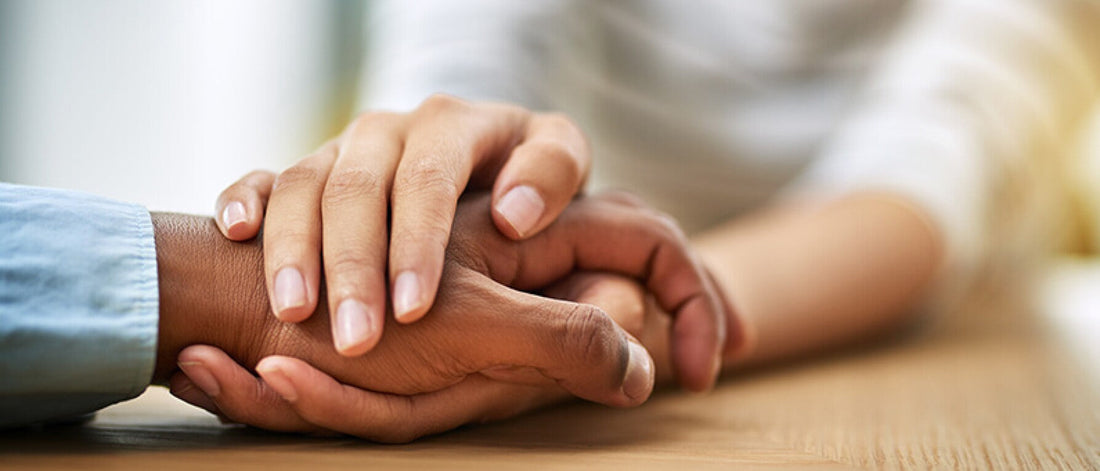Forgiveness is a vital spiritual and emotional practice, and yet it is one of the hardest things to do. The idea of forgiveness can be conflicting as thoughts and emotions swirl around how or even if you could ever forgive someone who has wronged you or hurt you.
Forgiveness isn’t easy, but your innate capacity for forgiveness offers hope that it is possible. It’s incredible what people are able to forgive. The familiar truism, “It takes a strong person to say they are sorry and an even stronger person to forgive,” emphasizes the fact that it takes great courage and strength to forgive. However, by doing so, you release blockages preventing you from living the life you deserve. There is no peace without forgiveness.
1. Forgiveness is a conscious and deliberate decision to let go of resentment and other associated feelings such as blame, guilt, and shame, the judgment of another (including yourself), or the need for vengeance. There are varying degrees to which these can be experienced and all of them are valid. Forgiveness can be for “minor” hurts as well.
2. Forgiveness does not necessarily mean reconciliation. You ultimately do it for you, not for the other person. You may know from experience that the pain of the past can remain like a thorn just below the surface, burrowing deeper and festering if it remains in place. This is especially true of resentment.
Nelson Mandela, an anti-apartheid revolutionary, political leader, and former president of South Africa, said it best when he stated that “resentment is like drinking poison and then hoping it will kill your enemies.” It’s ok to be angry, sad, etc., in the beginning, however, there will be a time when it’s time to forgive as well. Resentment is not meant to be harbored within the walls of your body and mind, demonstrated by the fact that it can cause deleterious effects if it remains a part of your psyche for a long time.
3. Forgiveness does not mean walking away and admitting defeat. Instead, it offers the opportunity to take your life back and free yourself from the bondage of anger and resentment. You can proceed with moving forward in life without the baggage of injurious emotions.
4. Forgiveness is not something you do for the benefit of another. It’s quite a personal healing process that requires deep introspection. Maybe there is some self-forgiveness that needs to happen as people often are hardest on themselves. You may need to learn how to forgive yourself first. Is there a lesson to be learned? How do you want things to change moving forward? Challenges in life are fertile ground for growth.
5. Forgiveness can be learned through examples. You can gain a great deal of inspiration from those who have overcome unspeakable trauma and been able to choose to forgive their wrongdoer(s). Nelson Mandela forgave those who had imprisoned him, tortured his people, and committed horrible atrocities against the non-white populaces in South Africa. Malala Yousafzai, the Pakistani activist for female education, survived an assassination attempt and forgave her attackers. Both ended up receiving the Nobel Peace Prize for their humanitarian work. The important thing to note in both of these instances is that because they were able to forgive, it enabled them to heal and move forward and become powerful forces for change.
6. Forgiveness may not always be an option. There may be extreme instances where forgiveness is just not an option, and it’s something to be honored. Perhaps understanding and compassion are needed much more than forgiving someone at this time. You have to be a willing party in all of this and not feel pressured. Wherever you are at with this process, proceed with love and kindness for yourself.
Forgiveness is:
The physical body is usually the first to feel this restriction and expresses disapproval in different ways such as through an upset stomach, heaviness in the chest, appetite decrease, tightness in the throat, or low energy. Your mental state usually mirrors that of the body so there is the potential for an increase in depression, sadness, and anxiety. If you can learn to forgive, the storm of emotions begins to calm and space is created to begin healing, allowing the knots to unfurl and release their grip on your life.
Forgiveness is medicine for the body, mind, and spirit. There is research that shows that forgiveness improves health, elevates mood, enhances optimism, and reduces anger, stress, anxiety, and depression. The negative emotions experienced in a state of unforgiveness elicit a natural stress response that can lead to chronic health issues. Disease is experienced, telling you that you are not meant to hold on to such negativity for days, weeks, or months.
Ultimately, there many benefits of practicing forgiveness, including:
A healthy and happy life requires that you are fully engaged. It takes a lot of energy to be resentful, angry, or critical. It pulls at your attention and masks your true desires. If you don’t forgive, you are the one who suffers from your own negative feelings. Rather than continue to give away your power to someone or something in the past and suffer for it, it might be time to forgive and use that energy to create the life you want instead. There is no time like the present!
Forgiveness isn’t easy, but your innate capacity for forgiveness offers hope that it is possible. It’s incredible what people are able to forgive. The familiar truism, “It takes a strong person to say they are sorry and an even stronger person to forgive,” emphasizes the fact that it takes great courage and strength to forgive. However, by doing so, you release blockages preventing you from living the life you deserve. There is no peace without forgiveness.
The Fundamentals of Forgiveness
The following are important characteristics of forgiveness.1. Forgiveness is a conscious and deliberate decision to let go of resentment and other associated feelings such as blame, guilt, and shame, the judgment of another (including yourself), or the need for vengeance. There are varying degrees to which these can be experienced and all of them are valid. Forgiveness can be for “minor” hurts as well.
2. Forgiveness does not necessarily mean reconciliation. You ultimately do it for you, not for the other person. You may know from experience that the pain of the past can remain like a thorn just below the surface, burrowing deeper and festering if it remains in place. This is especially true of resentment.
Nelson Mandela, an anti-apartheid revolutionary, political leader, and former president of South Africa, said it best when he stated that “resentment is like drinking poison and then hoping it will kill your enemies.” It’s ok to be angry, sad, etc., in the beginning, however, there will be a time when it’s time to forgive as well. Resentment is not meant to be harbored within the walls of your body and mind, demonstrated by the fact that it can cause deleterious effects if it remains a part of your psyche for a long time.
3. Forgiveness does not mean walking away and admitting defeat. Instead, it offers the opportunity to take your life back and free yourself from the bondage of anger and resentment. You can proceed with moving forward in life without the baggage of injurious emotions.
4. Forgiveness is not something you do for the benefit of another. It’s quite a personal healing process that requires deep introspection. Maybe there is some self-forgiveness that needs to happen as people often are hardest on themselves. You may need to learn how to forgive yourself first. Is there a lesson to be learned? How do you want things to change moving forward? Challenges in life are fertile ground for growth.
5. Forgiveness can be learned through examples. You can gain a great deal of inspiration from those who have overcome unspeakable trauma and been able to choose to forgive their wrongdoer(s). Nelson Mandela forgave those who had imprisoned him, tortured his people, and committed horrible atrocities against the non-white populaces in South Africa. Malala Yousafzai, the Pakistani activist for female education, survived an assassination attempt and forgave her attackers. Both ended up receiving the Nobel Peace Prize for their humanitarian work. The important thing to note in both of these instances is that because they were able to forgive, it enabled them to heal and move forward and become powerful forces for change.
6. Forgiveness may not always be an option. There may be extreme instances where forgiveness is just not an option, and it’s something to be honored. Perhaps understanding and compassion are needed much more than forgiving someone at this time. You have to be a willing party in all of this and not feel pressured. Wherever you are at with this process, proceed with love and kindness for yourself.
What Is Forgiveness—A Quick Summary
Here is a quick list to help summarize what true forgiveness is (and isn’t):Forgiveness is:
- A blessing
- Healing
- A process
- A choice
- Not always easy
- Peace
- Empowering
- Freedom
- Weakness
- Forgetting what happened
- Saying you want things to go back to the way they were
- Relieving the person of responsibility
- Saying you instantly trust someone (or ever)
- Condoning behavior or tolerating any further abuse
The Importance of Forgiveness
When you remain in a state of unforgiveness, you are bound like a gnarly knot to those who have wronged you. There is no flow, only restriction. Inspirational author and pastor, T.D. Jakes, says “Unforgiveness, left unchecked, becomes a cancer in our soul.” Like cancer, unforgiveness quietly and steadily eats away on different parts of your life, including the good stuff. Over time, as the natural flow of your life becomes disrupted it starts to affect relationships, work, and general health and well-being.The physical body is usually the first to feel this restriction and expresses disapproval in different ways such as through an upset stomach, heaviness in the chest, appetite decrease, tightness in the throat, or low energy. Your mental state usually mirrors that of the body so there is the potential for an increase in depression, sadness, and anxiety. If you can learn to forgive, the storm of emotions begins to calm and space is created to begin healing, allowing the knots to unfurl and release their grip on your life.
Forgiveness is medicine for the body, mind, and spirit. There is research that shows that forgiveness improves health, elevates mood, enhances optimism, and reduces anger, stress, anxiety, and depression. The negative emotions experienced in a state of unforgiveness elicit a natural stress response that can lead to chronic health issues. Disease is experienced, telling you that you are not meant to hold on to such negativity for days, weeks, or months.
Ultimately, there many benefits of practicing forgiveness, including:
- An increase in happiness
- A decrease in depression and anxiety
- Improved health
- Improved relationships
- An increase in compassion
Forgiveness Needs to Be Cultivated
Forgiveness is a skill that needs to be cultivated. If you are interested in learning about the forgiveness process, there are plenty of resources available on the internet. You can check out Deepak Chopra’s 7 Steps to Forgiveness to get you started.A healthy and happy life requires that you are fully engaged. It takes a lot of energy to be resentful, angry, or critical. It pulls at your attention and masks your true desires. If you don’t forgive, you are the one who suffers from your own negative feelings. Rather than continue to give away your power to someone or something in the past and suffer for it, it might be time to forgive and use that energy to create the life you want instead. There is no time like the present!






















